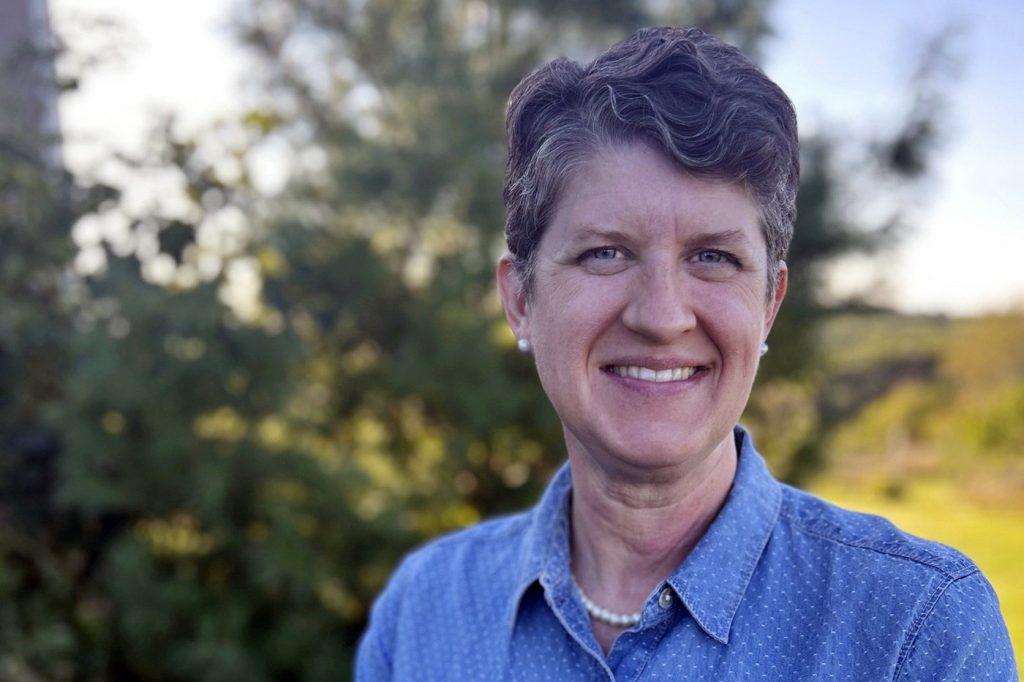MADISON, Wis. (AP) — The upcoming April 1 election in Wisconsin has generated substantial attention mainly due to the high-stakes race for the state Supreme Court. However, other crucial issues will also be at play when early voting begins on Tuesday. Among these is a competitive election for the state's top education official, who will have a significant influence on K-12 education policies during President Donald Trump's second term.
Another significant measure on the ballot is a proposal to elevate Wisconsin's existing voter ID law into the state constitution. This move has been framed by proponents as a means to enhance election security and prevent potential legal challenges against the law.
The two races have sharp partisan divides, drawing less funding and national attention compared to the Supreme Court contest. The race for the Department of Public Instruction pits the incumbent, Jill Underly, backed by teachers' unions, against Republican-endorsed consultant Brittany Kinser, who supports private school voucher programs.
Jill Underly, who was first elected as state superintendent in 2021, has a career rooted in education since 1999, starting as a high school social studies teacher in Indiana. Underly later moved to Wisconsin, where she worked for the state education department before serving as principal of Pecatonica Elementary School. She is endorsed by the Wisconsin Education Association Council and the Wisconsin Democratic Party, among other Democrats.
In contrast, Brittany Kinser, previously a public school principal at a charter school, highlights her experience in education. Kinser worked with Rocketship schools, a national charter school network, and founded a consulting firm focused on promoting charter and voucher schools after leaving the organization in 2022. Her campaign is fueled by backing from the Wisconsin Republican Party.
Kinser's strategy includes criticizing Underly for her management of the Department of Public Instruction and the overhaul of state achievement standards last year, which faced bipartisan backlash. Underly defends the new standards, asserting they better represent current student learning, while Kinser claims they dilute educational expectations and hinder performance tracking over time.
Underly has positioned herself as a staunch advocate for public schools, attempting to frame Kinser as a lobbyist aligned with far-right politicians seeking to divert resources from public education. This divide is accentuated by Kinser's support for voucher schools, which many Democrats, including Underly, argue undermines public school funding.
Furthermore, Underly has made the potential elimination of the U.S. Department of Education part of her campaign, voicing strong opposition to dismantling the federal agency. Kinser has suggested that regardless of any changes to federal policy, the state will maintain its educational momentum as long as it continues to receive federal funding.
In addition to the education race, the proposed constitutional amendment to enshrine Wisconsin's voter ID law presents another critical decision for voters. Should they approve this measure, it would add the photo ID requirement to the constitution, complicating future efforts to modify or repeal this law, which has been in effect since 2011 but only permanently established in 2016 following contested lawsuits. Proponents advocate that this amendment will reinforce election security, while Democrats express concerns about its disproportionate impact on marginalized communities, making it harder for voters of color, the disabled, and those with fewer resources to participate.
The controversy surrounding voter ID laws is amplified by the fact that Wisconsin's requirement is among the strictest in the nation, and if solidified in the constitution, would necessitate broad legislative change before any adjustments could be made. Currently, Wisconsin is one of only nine states enforcing a photo ID mandate for voting, and a total of 36 states have some form of voter identification requirements.










